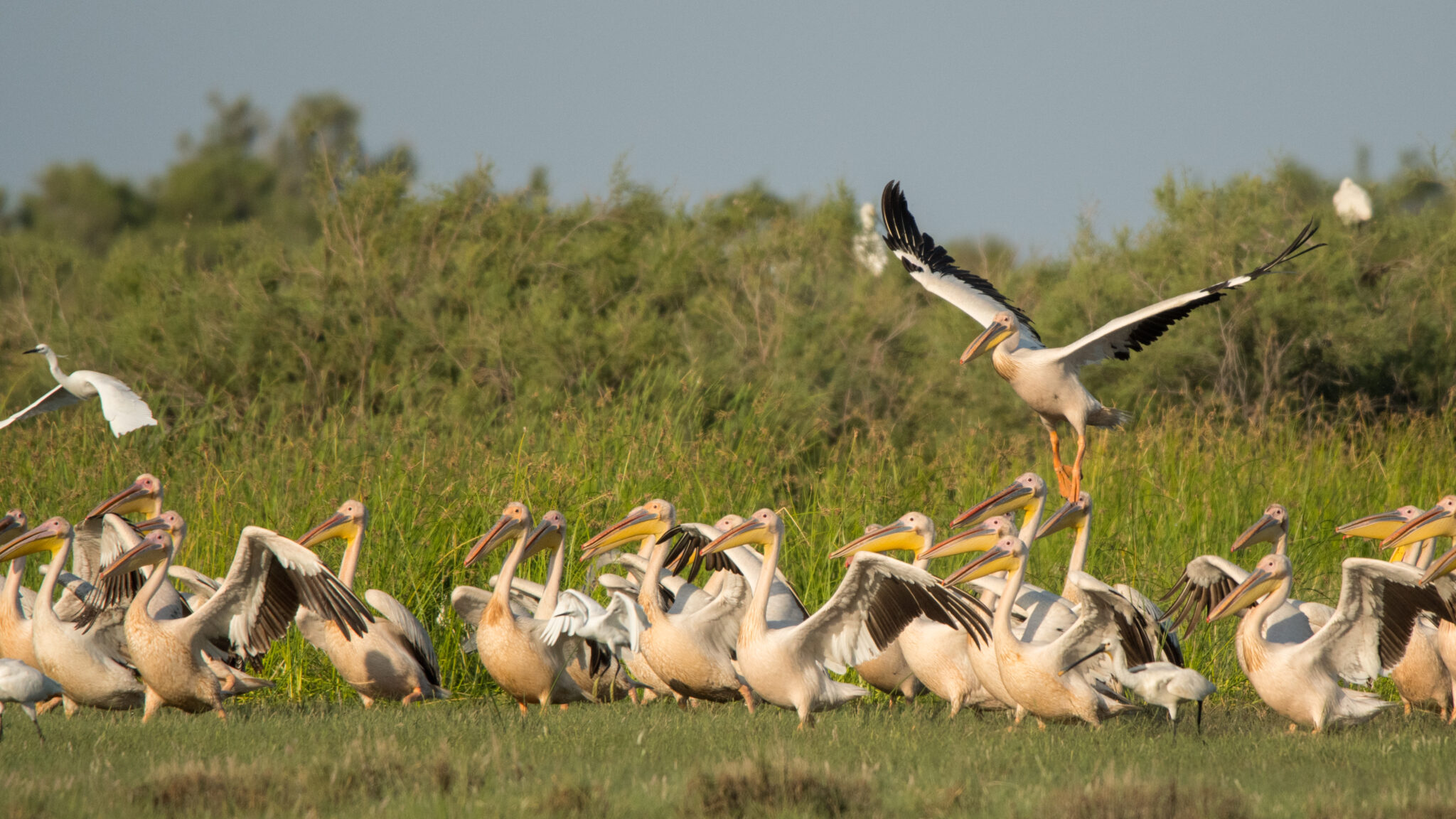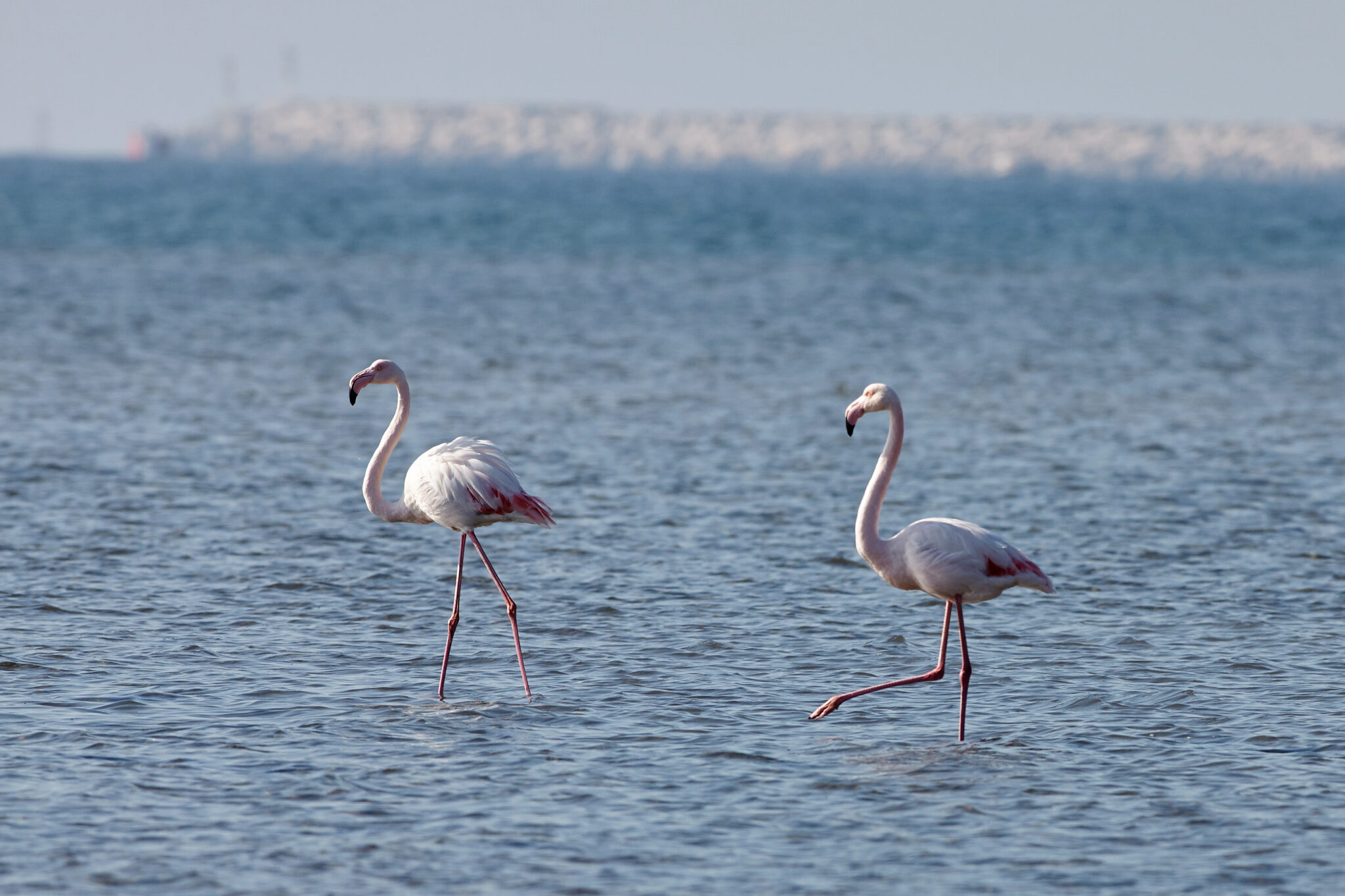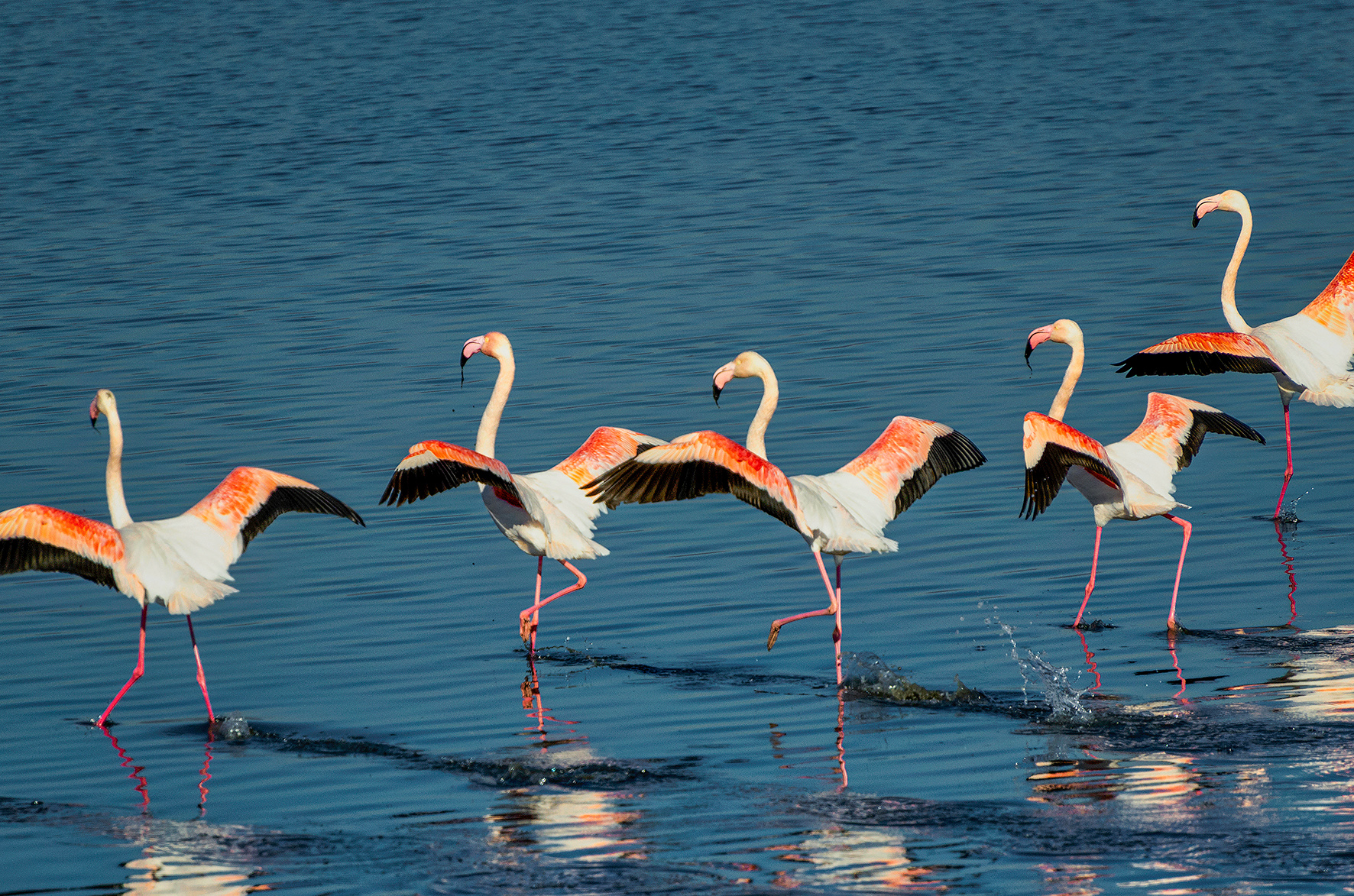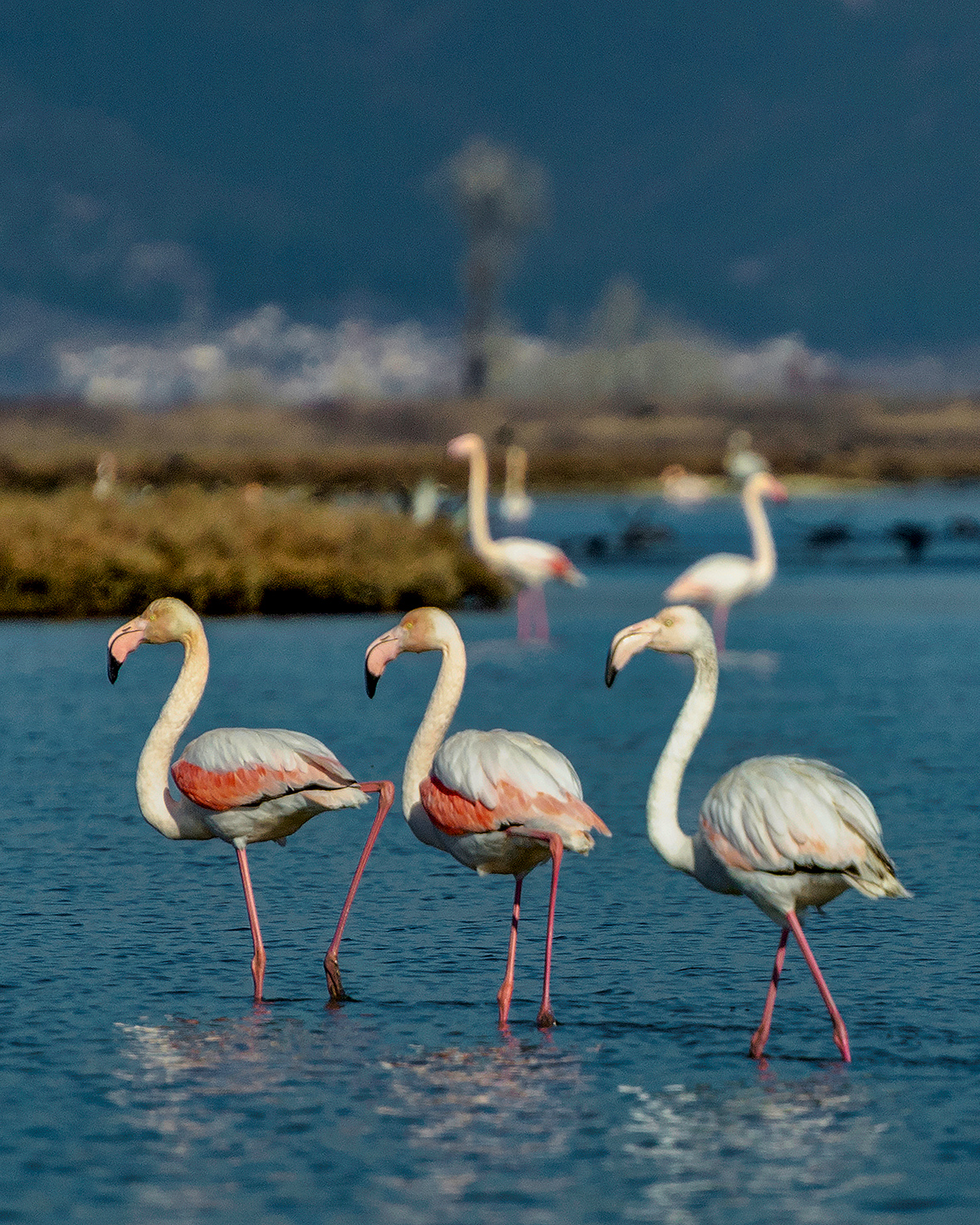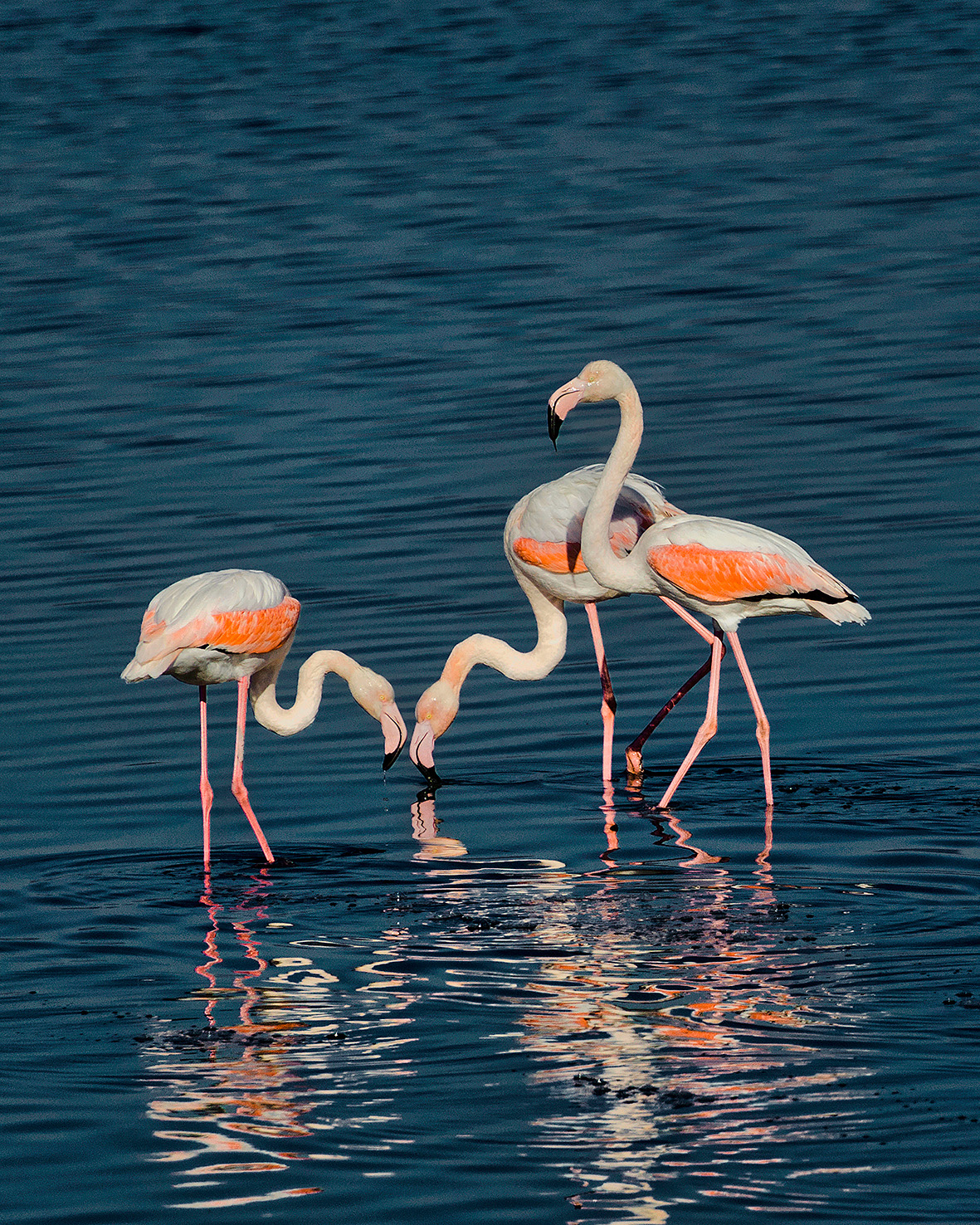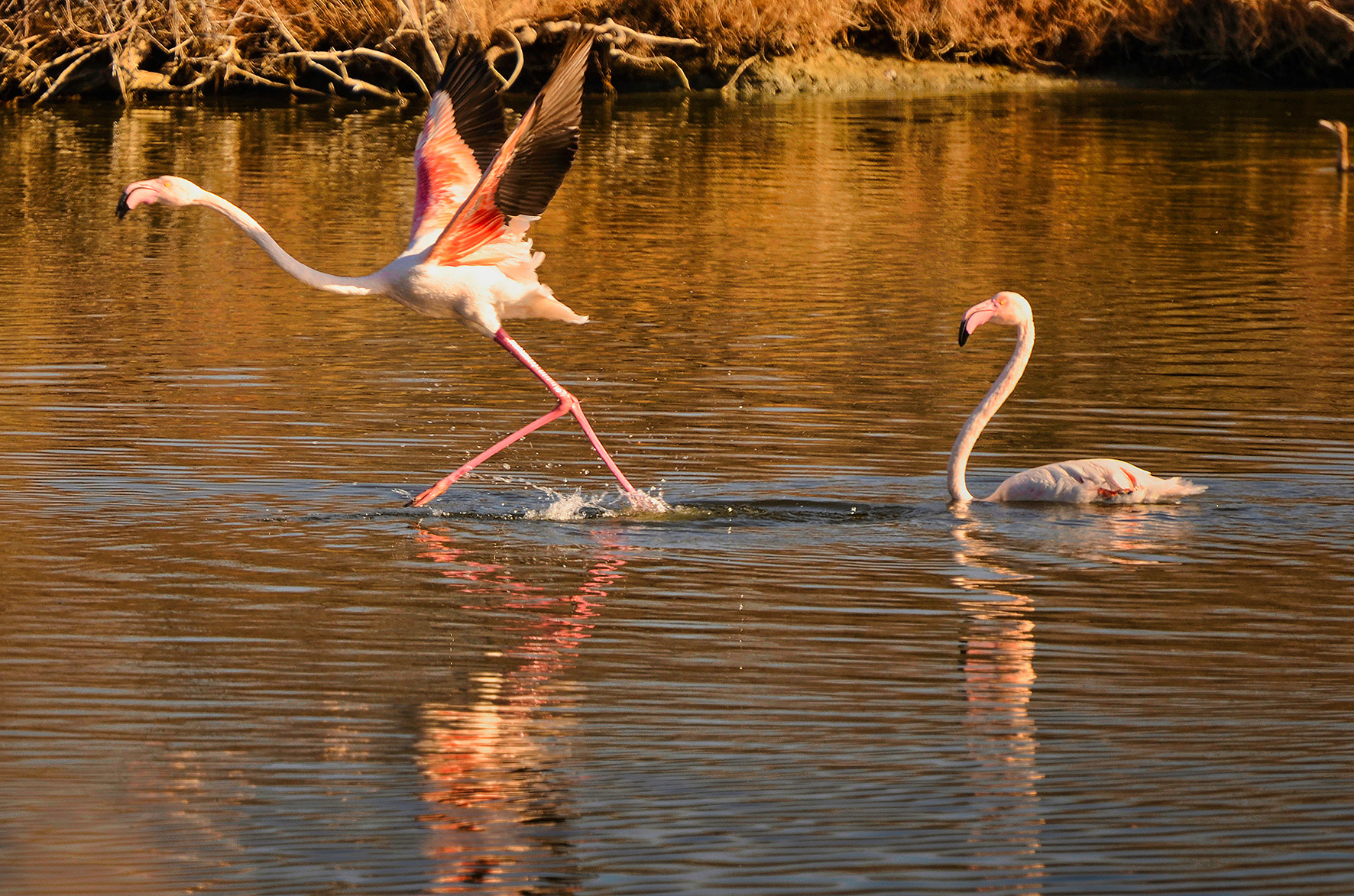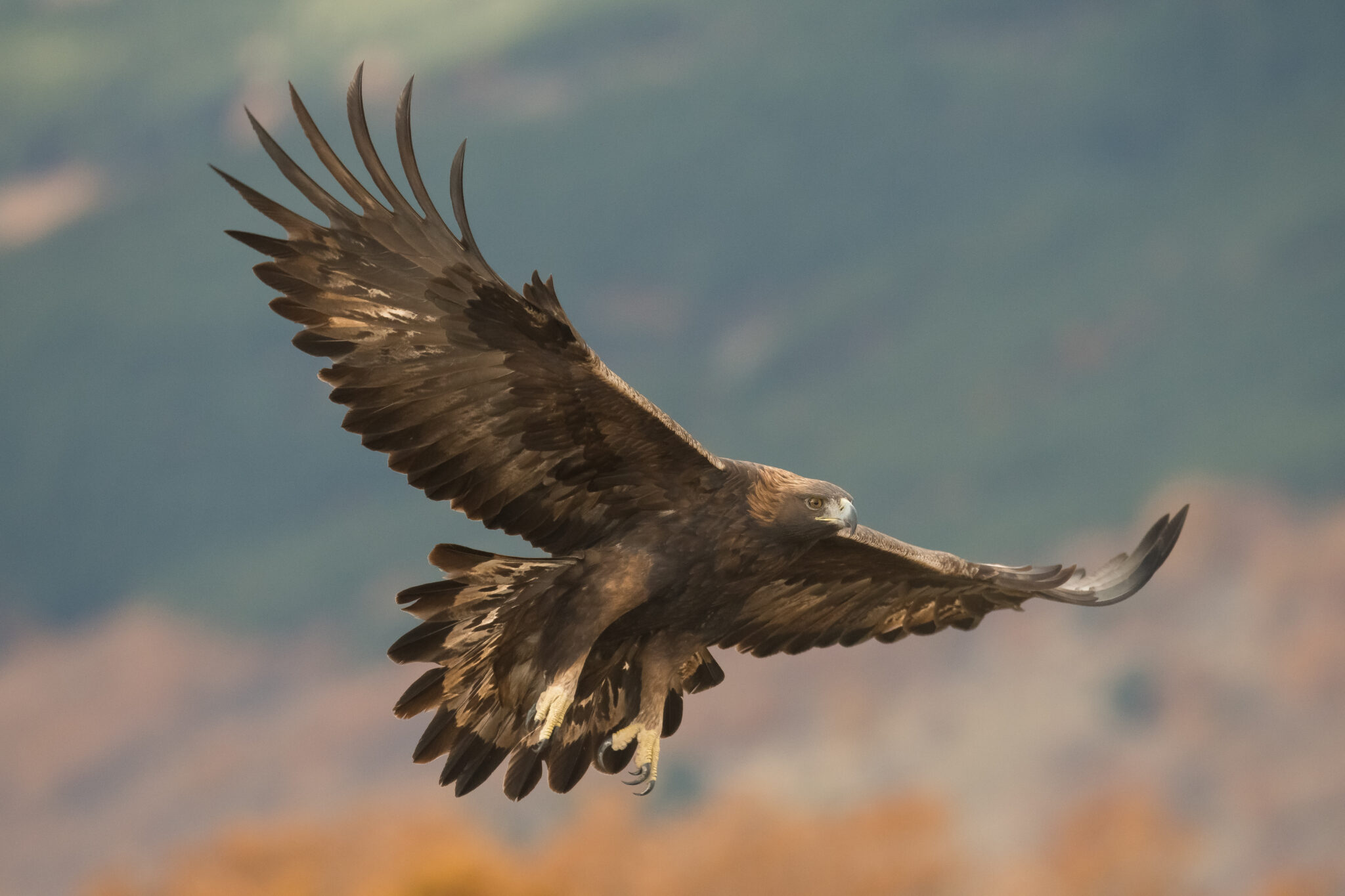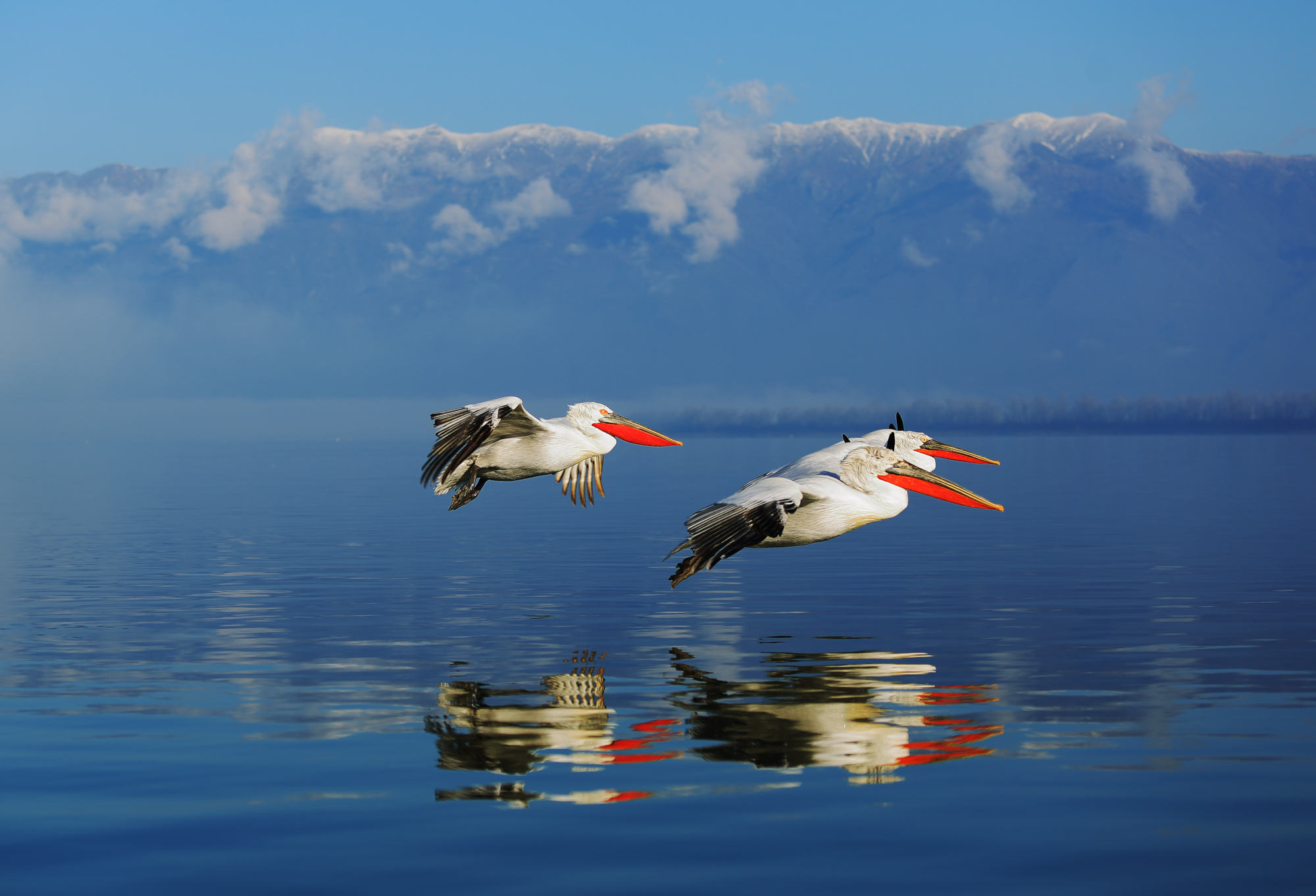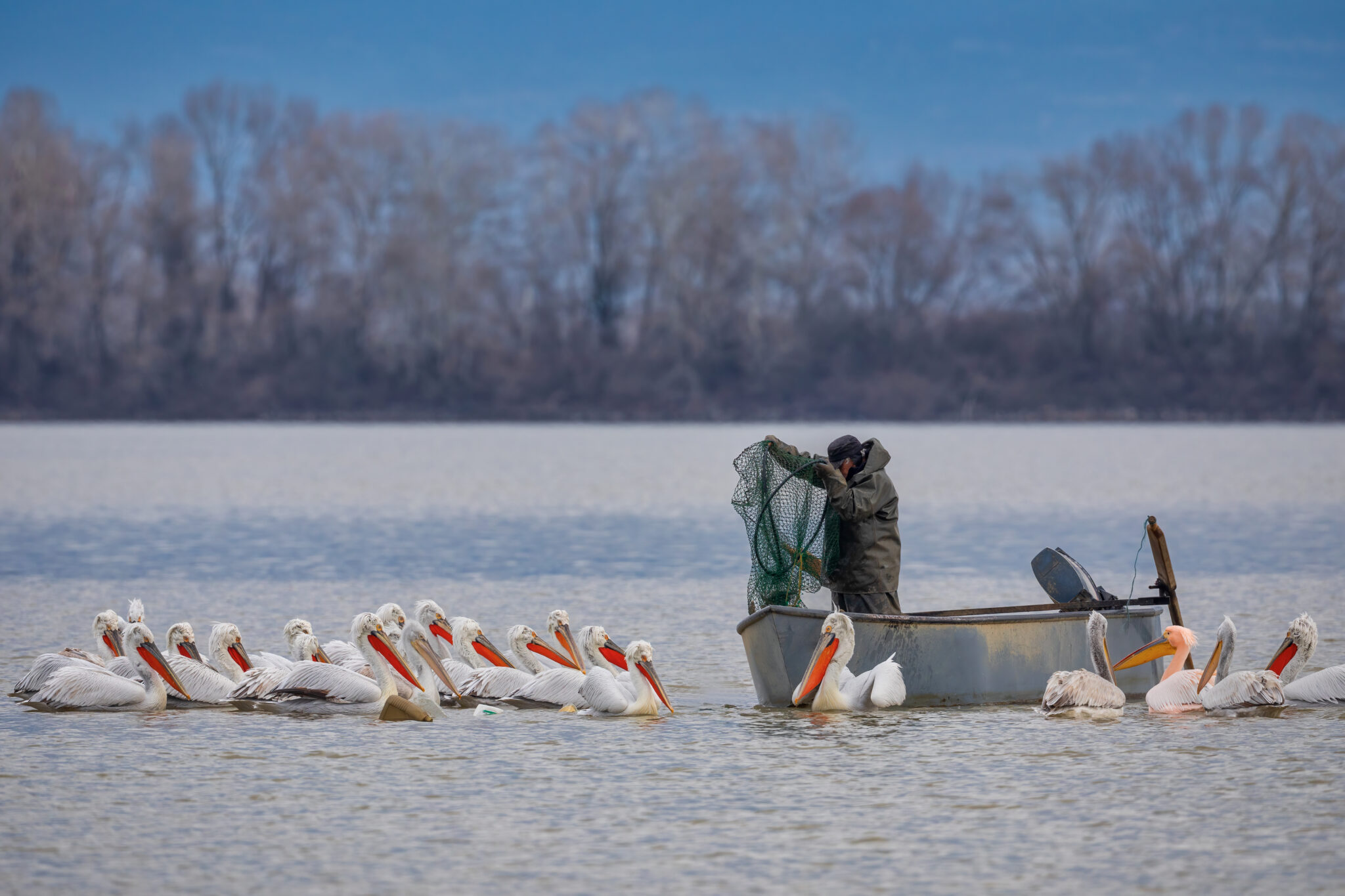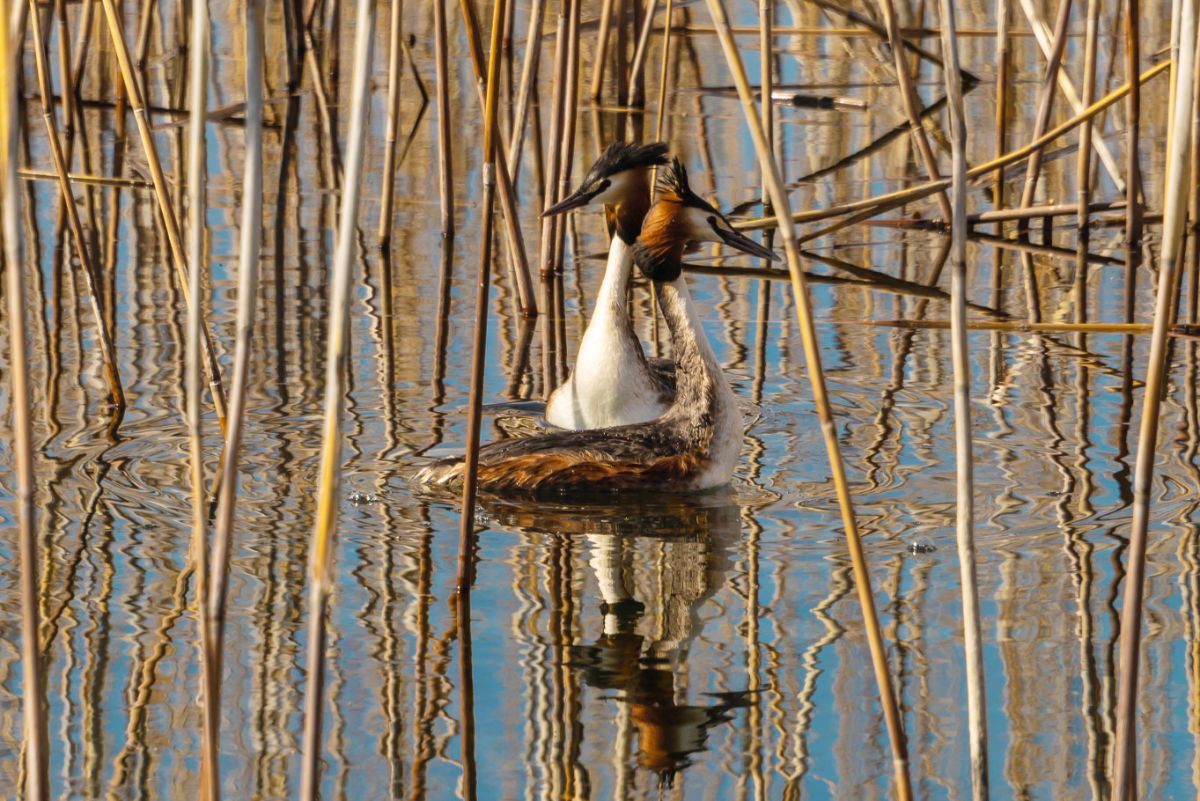Have you ever been moved by the images of wild birds gracefully flying over a lake with a winter sunset in the background? Although it may seem intimidating, birdwatching is a straightforward method to connect with Greece’s untamed nature and witness rare species that can only be found in books. All you need is a pair of binoculars, patience and a passion to explore to uncover the marvels of wild Greece.
Ervos Delta
Noted as the birdwatcher’s paradise of the country, the Ervos Delta is one of the most pristine natural wetlands in Greece. Hosting countless bird species, the Delta serves as an important crossroad in the migratory routes of birds traveling from cold northern Europe environments to warmer climes of the southern Mediterranean. Among many rare European species, one can encounter Spoonbills, dozens of different types of marshland birds, and even swans waiting patiently for the winter to pass before the summer arrives. For this reason, every winter the Evo Delta is “overrun” with countless species of rare birds, making it an ideal location for observing birds in their natural habitat.
Since there are many small birds in the reeds and in the wetlands of Evros, Delta is a habitat for several rare birds of prey. It is not unlikely to encounter eagles, buzzards or even wild falcons and kites hunting patiently in the area. However, remember that birds of prey are rare and do not be disappointed if you do not hear the deafening cry of an eagle hunting.
Lake Vistonida – Porto Lagos
Not far from the Delta of Evros, you can find another ideal area for birdwatching. Located between the coastal zones of the prefectures of Xanthi and Rhodope, Lake Vistonida with its dozens of marshes, brackish water and the characteristic church of Saint Nicholas, is one of the most interesting and important wetland sites in Greece.
Included in the Natura 2000 Network, Lake Vistonida hosts at least 227 species of birds in its deep waters, with some of them being extremely rare, such as the black-necked grebes and the whiskered terns. Just like in the Delta of Evros, many species of birds winter in Lake Vistonida, waiting for a warm summer. If you are lucky, you might spot the white headed ducks (Oxyura leucocephala) with white heads and dark bodies that winter exclusively on Lake Vistonida, migrating from Asia. However, their population is threatened with hybridisation extinction and each year fewer of these unique small-billed ducks arrive in the area.
Mesolongi
The area between Achelous and Evinos is one of the most important wetlands in the Mediterranean, as it is a unique ecosystem that hosts almost 300 different bird species, and it is estimated that in the wetland of Mesolongi – Aitoliko there are more than 20,000 ducks. It is not, therefore, surprising that this wetland is considered one of the most important not only in Greece, but also throughout the Mediterranean.
It is noteworthy that rare bird species such as the Ferruginous duck (Aythya Nyroca) and the little gull (Larus Minutus) migrate to Mesolongi. For enthusiasts of birds of prey, Mesologi is a beloved area for the Greater Spotted eagle and osprey. If you’re lucky, you might even see an Eastern Imperial eagle flying menacingly above your head.
Lake Kerkini
Picturesque and evocative, Lake Kerkini is one of the best known and well-regarded lakes in Greece. Despite the rise in tourism and development causing some environmental issues, the protected area is an important wetland that hosts many rare animals. At Lake Kerkini, you can find flamingos, Dalmation Pelicans (the largest fresh-water bird), European robins, and even the monogamous Greylag Goose. These and the presence of swans only further enhances the romantic atmosphere of the place.
With more than 300 bird species, Lake Kerkini is included in the Ramsar Network and is one of the most important wetlands in Greece. In addition to birds, it also serves as a sanctuary for certain rare mammals and fish such as wild boars and eels. So fortunate ornithologists who visit the area often get see see more than they bargain for.
Prespes
Located far in the far north of Greece, on the border with North Macedonia and Albania, Prespes is an ideal destination for those who want to combine a winter getaway with birdwatching. Included in the Natura 2000 network, Prespes host many rare bird species such as greylag geese, the large ‘Mergus Merganser’ duck and even the endangered Dalmatian Pelican. These latter three together are endemic migratory species of Prespes, giving avid ornithologists an additional reason to visit the area.
Naturaly some caution is required. Your presence should be absolutely discreet, as Dalmation Pelicans are among the most endangered and sensitive species in the world, and as a result, approaching them should be done with as much care and respect as possible. As is the case in every place.

